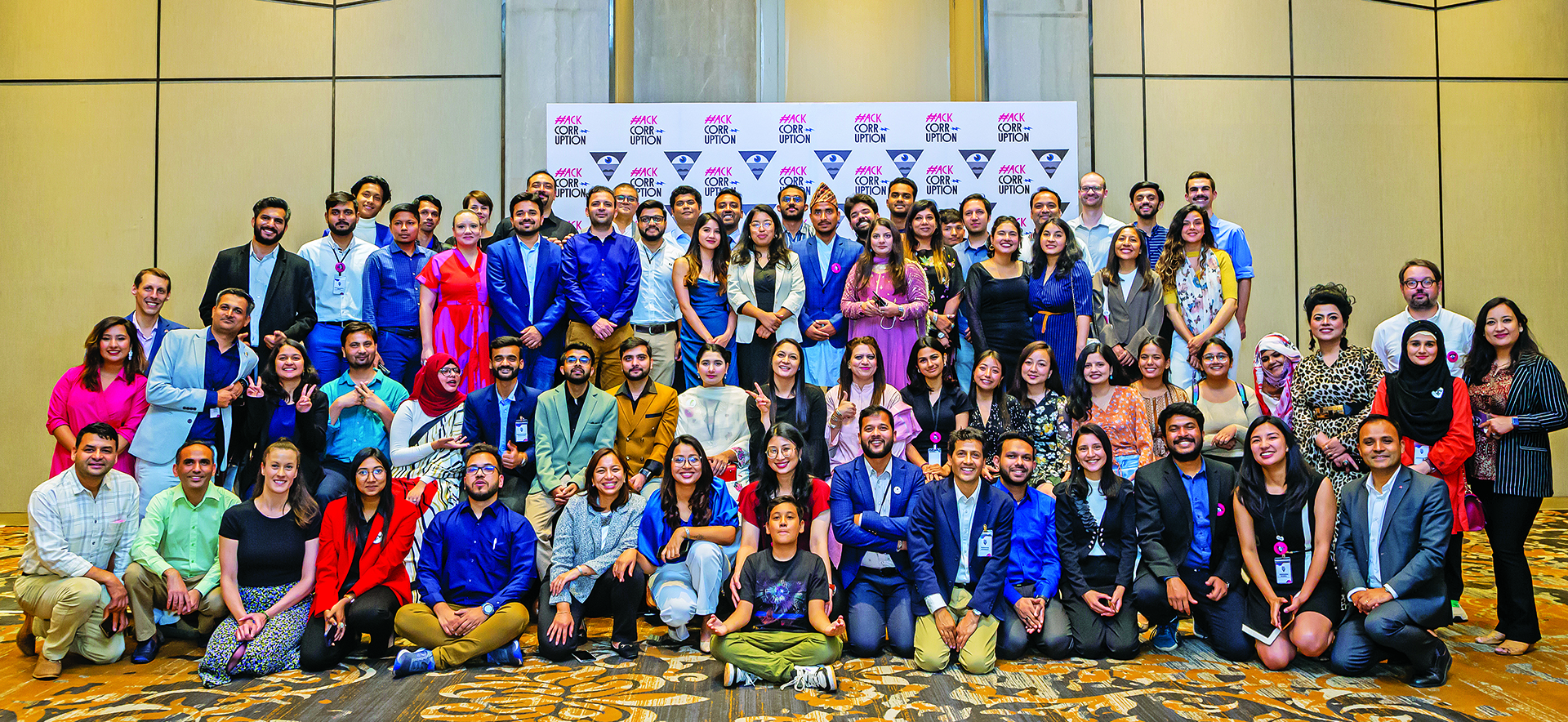
Accountability Lab implemented an anti-corruption hackathon under the #HackCorruption initiative in partnership with the Centre for International Private Enterprise (CIPE) and Development Gateway in Kathmandu from April 28 to 30. With HackCorruption, it aimed to create a digital town square where technologists, activists, and governance professionals could ideate together to devise creative and uncommon solutions to corruption.
It also went beyond the traditional three-day hackathon model to build regional networks of gov-tech enthusiasts and support ideas that could be implemented. This included a pre-hackathon orientation programme where experts were brought in to unpack the problem statements so that all participants understood the corruption challenges they sought to address. HackCorruption also provided ongoing support to the teams with the most feasible ideas in the form of seed funding, mentorship, tech/developer accompaniment, and access to sector experts.
The hackathon in Kathmandu convened 52 participants from Nepal, Bangladesh, India and Pakistan. This cohort included research, CSO practitioners working at the intersection of corruption and other social challenges, developers from the emerging technologies space, and digital anthropologists, among many other specialties. They received close to 650 applications, and the competition for the 50 spots paid off through the quality of the participant ideas. Among 11 teams, five teams have been selected for an intensive three-day bootcamp and will continue their ancillary programming over the next six months.
e-PMS
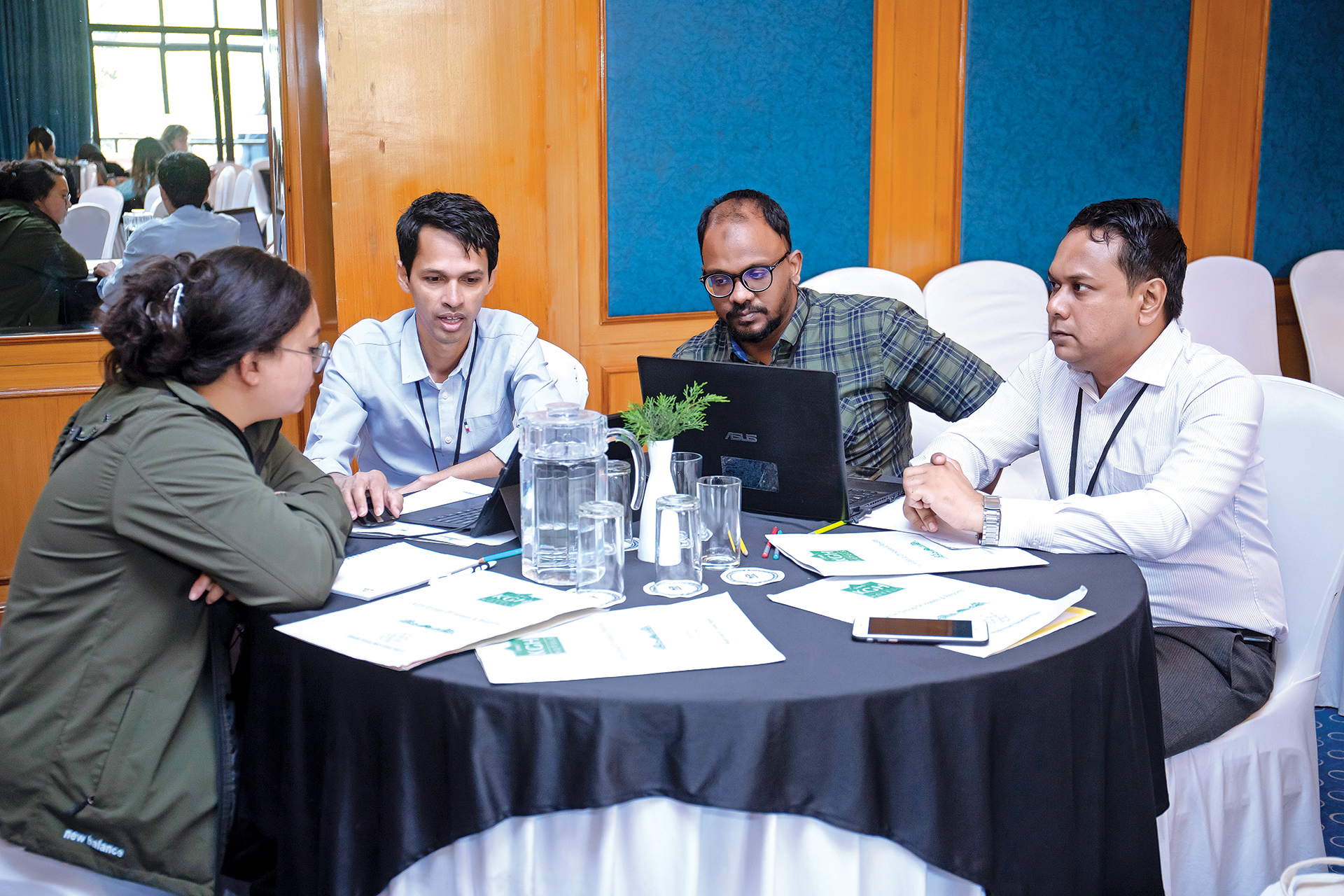 The purpose of e-PMS (e-Procurement Monitoring System) is to establish a monitoring tool for the e-procurement system (E-GP portal) in Nepal and Bangladesh, which will enable third party or civil society monitoring of procurement. The system will flag potential corruption using a series of indicators such as the frequency of awards to single contractors, reduced time between bidding deadlines and award dates, and dummy bidding, among others.
DAAC
The purpose of e-PMS (e-Procurement Monitoring System) is to establish a monitoring tool for the e-procurement system (E-GP portal) in Nepal and Bangladesh, which will enable third party or civil society monitoring of procurement. The system will flag potential corruption using a series of indicators such as the frequency of awards to single contractors, reduced time between bidding deadlines and award dates, and dummy bidding, among others.
DAAC
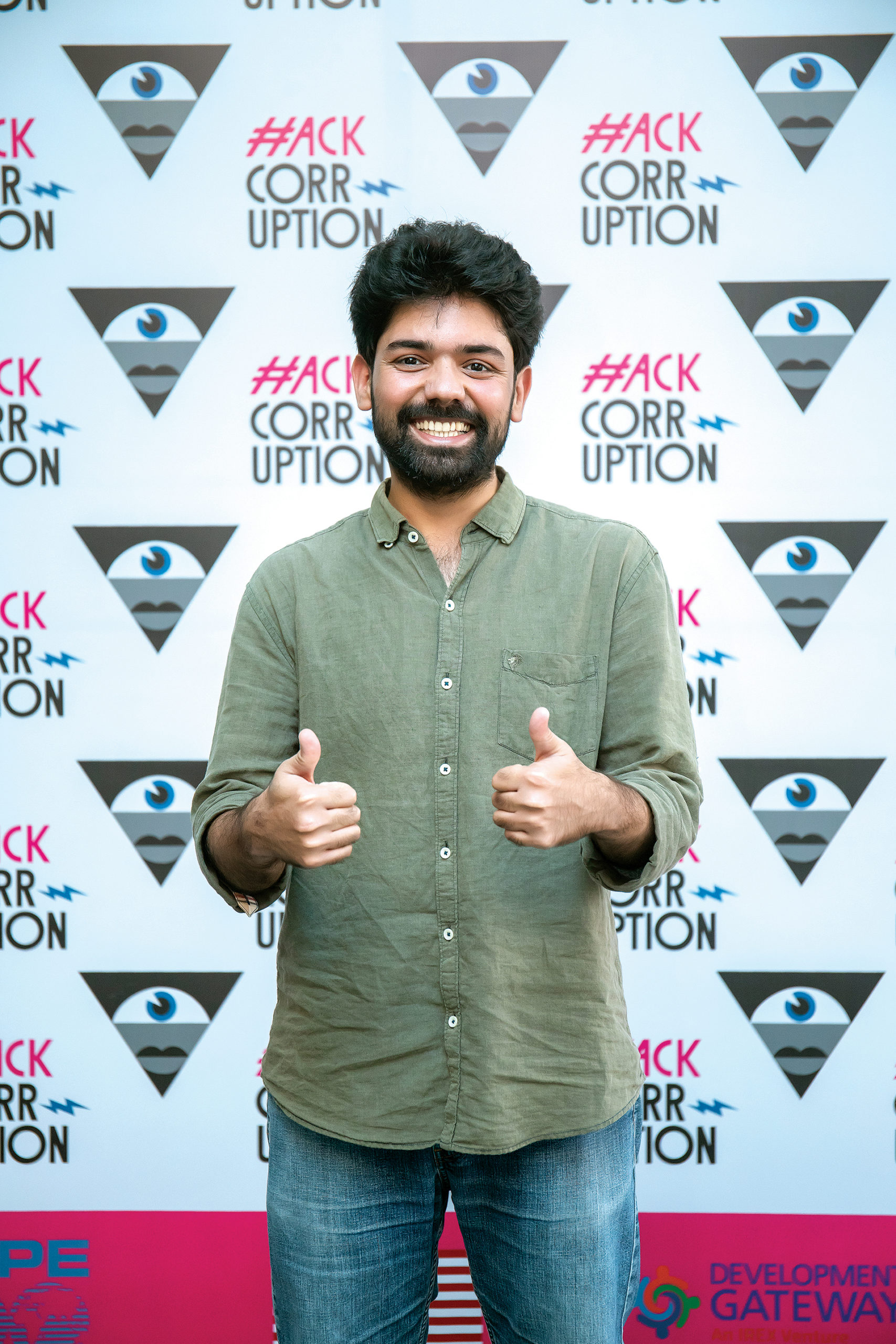 Grounded in Digital Anthropology and using Natural Language Processing and Digital Humanities, DAAC seeks to reimagine corruption data analysis. It will provide a natural language understanding of how corruption is taking place through citizen reviews, stories and media articles that are already available online but not aggregated, and that will help policymakers, CSOs and researchers understand where and how corruption can be curbed.
Support My School
Grounded in Digital Anthropology and using Natural Language Processing and Digital Humanities, DAAC seeks to reimagine corruption data analysis. It will provide a natural language understanding of how corruption is taking place through citizen reviews, stories and media articles that are already available online but not aggregated, and that will help policymakers, CSOs and researchers understand where and how corruption can be curbed.
Support My School
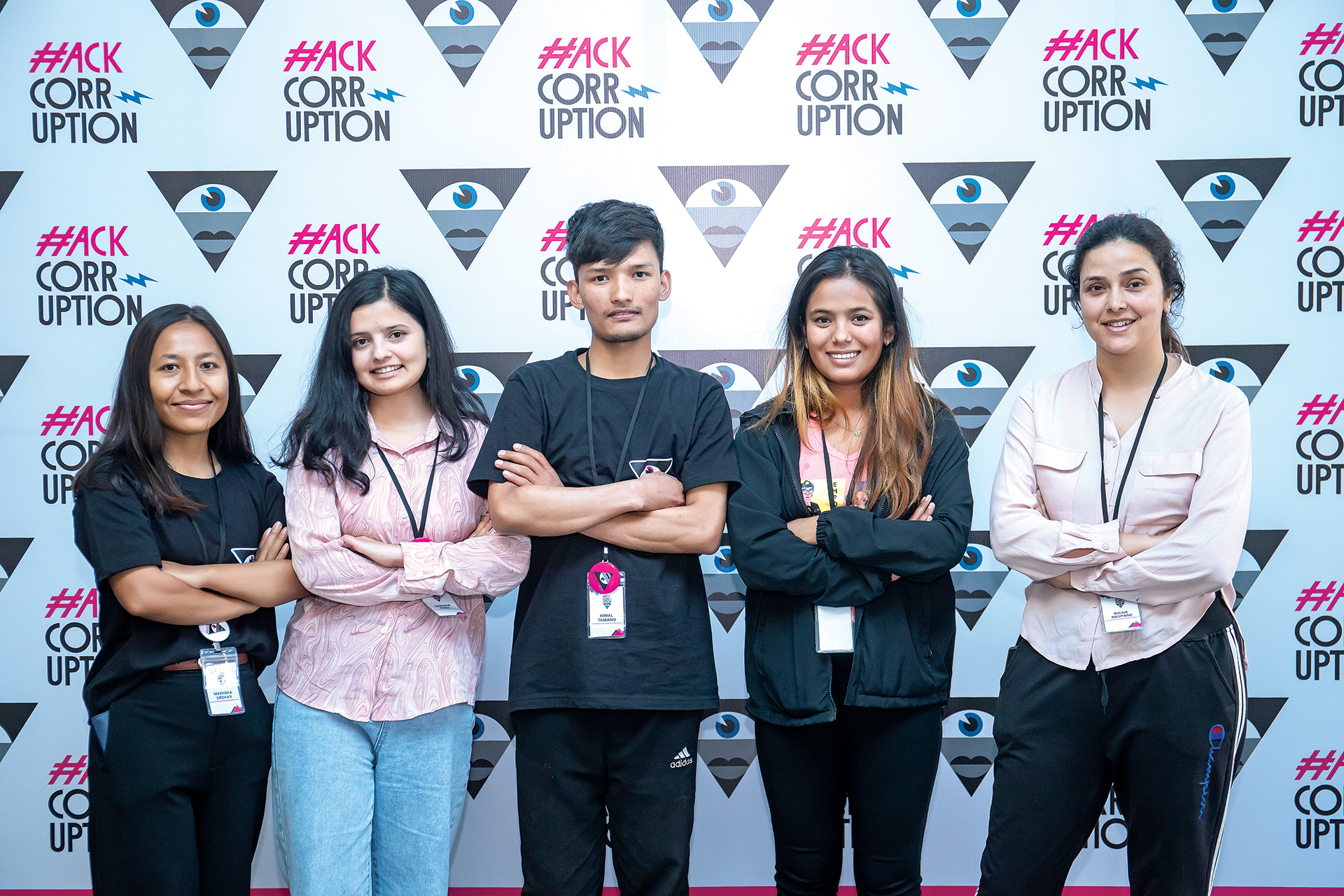 Support My School will hold schools accountable for infrastructure projects by enabling community members to measure and track the progress of development projects for which public funding is received. As a budget utilisation tracking mechanism, Support My School will also gather data and highlight where schools need funding beyond their allotted budget.
PAK Zameen
Support My School will hold schools accountable for infrastructure projects by enabling community members to measure and track the progress of development projects for which public funding is received. As a budget utilisation tracking mechanism, Support My School will also gather data and highlight where schools need funding beyond their allotted budget.
PAK Zameen
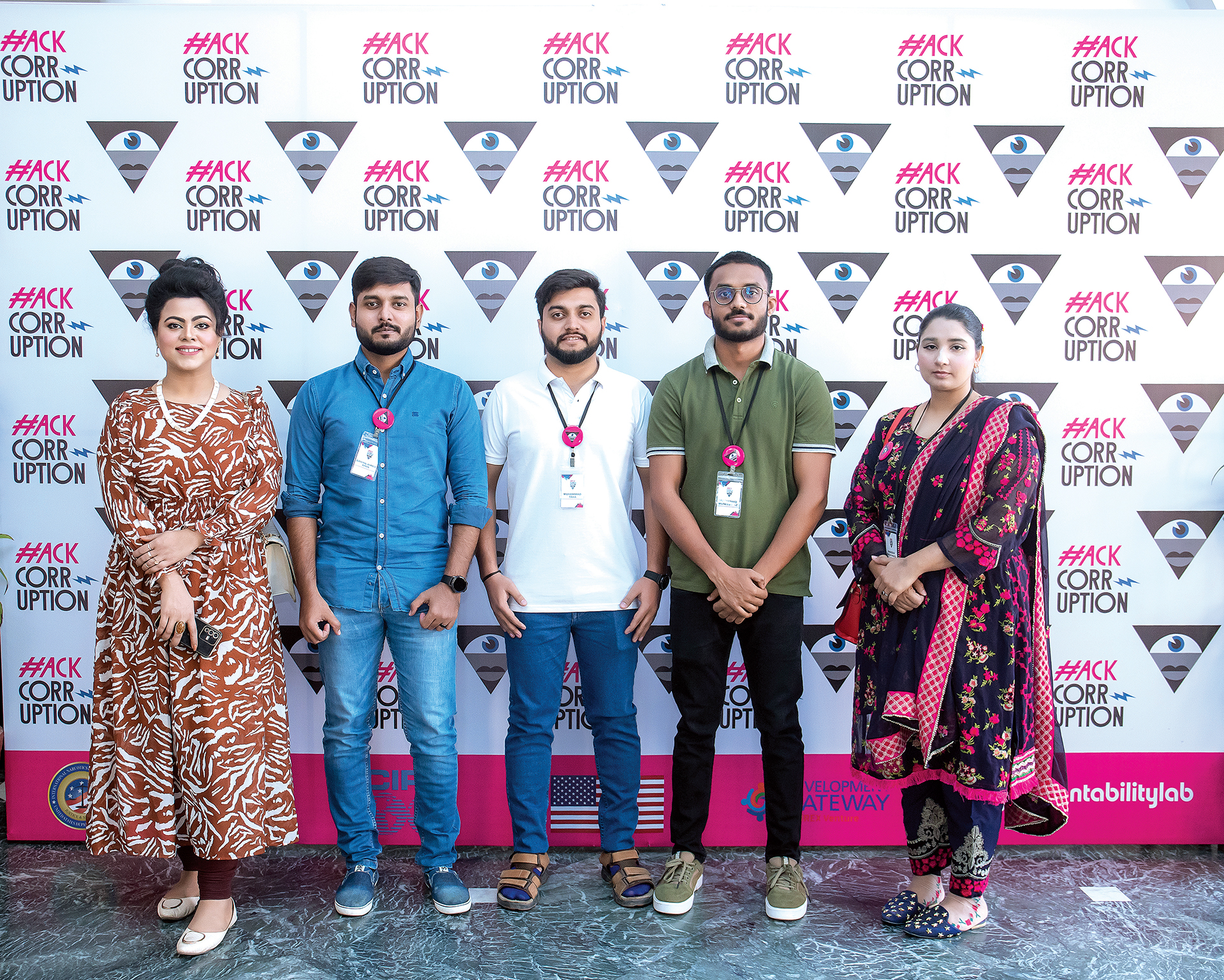 PAK Zameen aims to digitise land records in Pakistan and will combat corruption by eradicating manipulation, duplication and mutability of land records. Using blockchain to decentralise records and decrease corruption, PAK Zameen will simplify land purchases and boost tax revenue by expanding the registered property tax base.
KYP: Know Your Parliamentarian
PAK Zameen aims to digitise land records in Pakistan and will combat corruption by eradicating manipulation, duplication and mutability of land records. Using blockchain to decentralise records and decrease corruption, PAK Zameen will simplify land purchases and boost tax revenue by expanding the registered property tax base.
KYP: Know Your Parliamentarian
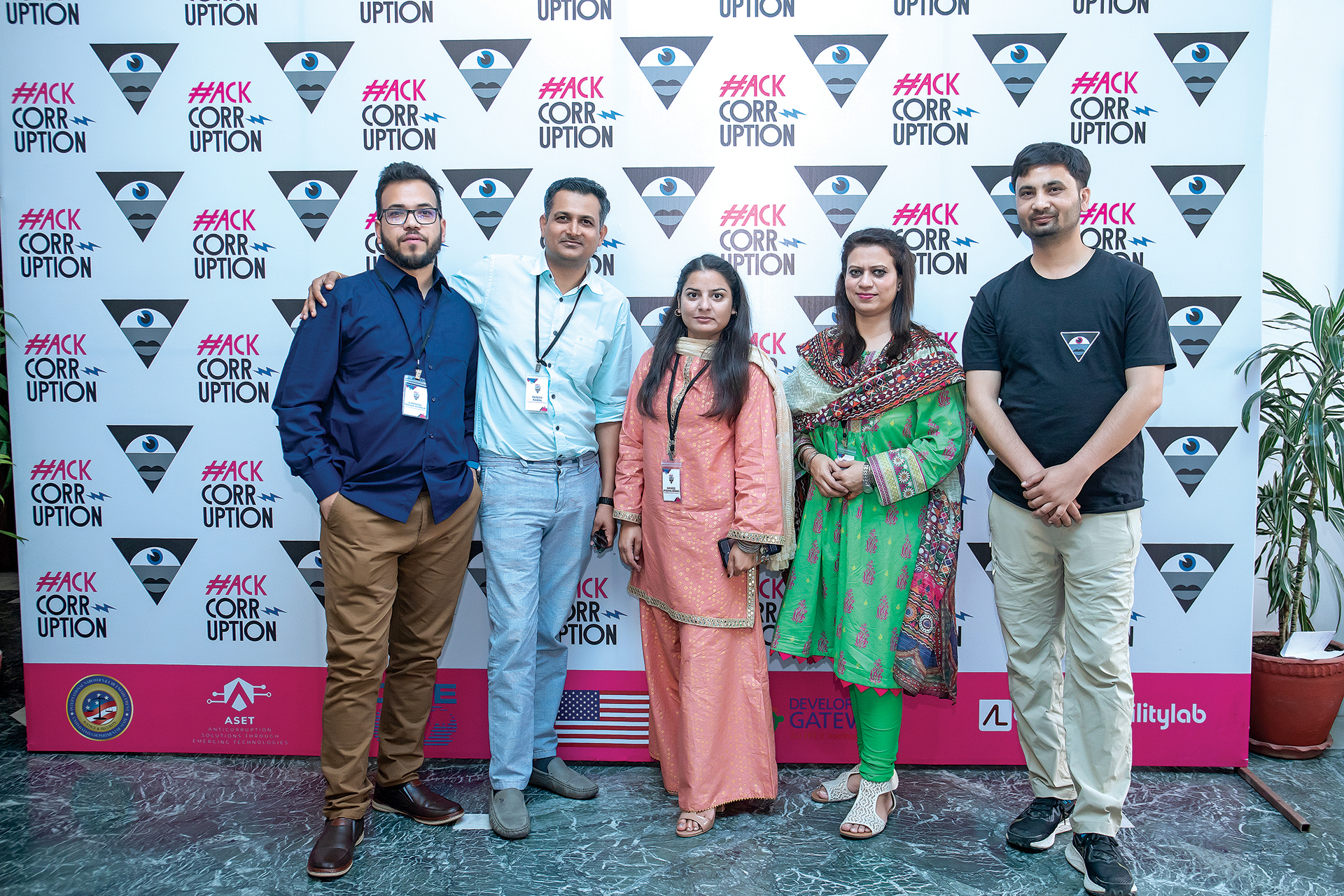 KYP aims to aggregate all the data available in the public domain (official government data, from authenticated data reports) and create a profile of individual parliamentarians. In addition to basic demographic, work and party affiliation information, KYP will also aggregate information on assets and changes in their wealth, past and pending civil and criminal investigations, and their family tree to reveal political and business interest.
*Accountability Lab will be hosting the next hackathon in Colombia later in the summer.
Cheri-Leigh Erasmus
Global Director of Learning, Accountability Lab
KYP aims to aggregate all the data available in the public domain (official government data, from authenticated data reports) and create a profile of individual parliamentarians. In addition to basic demographic, work and party affiliation information, KYP will also aggregate information on assets and changes in their wealth, past and pending civil and criminal investigations, and their family tree to reveal political and business interest.
*Accountability Lab will be hosting the next hackathon in Colombia later in the summer.
Cheri-Leigh Erasmus
Global Director of Learning, Accountability Lab
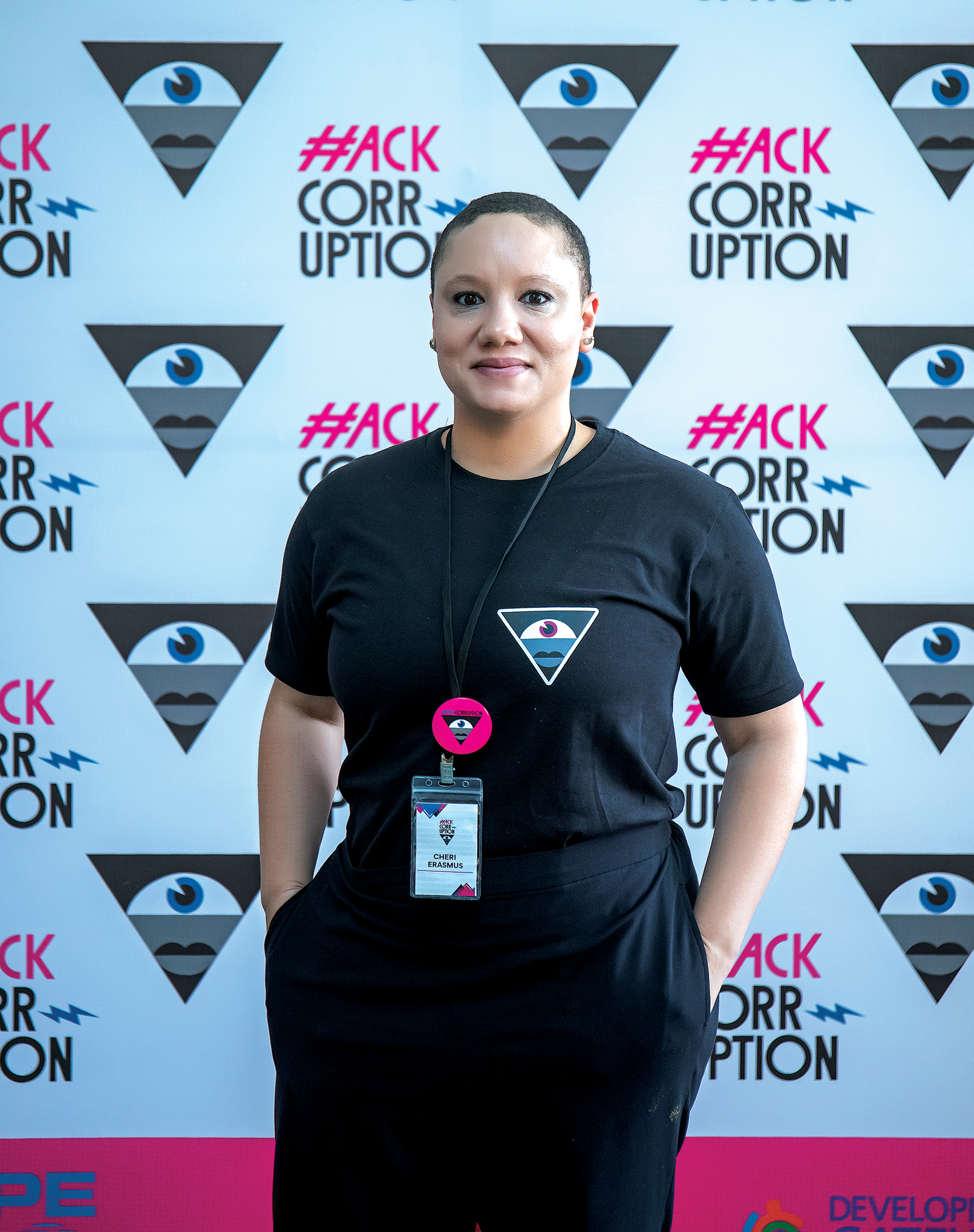 Cheri-Leigh Erasmus is the Global Director of Learning at the Accountability Lab, a nonprofit organisation aimed at making governance work for people by supporting active citizens, responsible leaders, and accountable institutions. She supports Accountability Lab’s learning and impact in 12 countries across Africa, South Asia and Latin America.
Erasmus has conceptualised and implemented knowledge, skills, and network-building curricula for reformers in the public service and civil society. She is committed to finding new ways of using citizen-generated data to strengthen civic participation, especially related to the increased inclusion of traditionally marginalised groups. She currently co-chairs the Steering Committee of the Transparency, Accountability and Participation (TAP) Network, co-chairs the board of Berrett Koehler-Foundation, and serves on the Board of Directors of Berrett-Koehler Publishers.
Business 360 caught up with Erasmus during her visit to Kathmandu to learn about the initiative. Excerpts of an interview with Erasmus.
Cheri-Leigh Erasmus is the Global Director of Learning at the Accountability Lab, a nonprofit organisation aimed at making governance work for people by supporting active citizens, responsible leaders, and accountable institutions. She supports Accountability Lab’s learning and impact in 12 countries across Africa, South Asia and Latin America.
Erasmus has conceptualised and implemented knowledge, skills, and network-building curricula for reformers in the public service and civil society. She is committed to finding new ways of using citizen-generated data to strengthen civic participation, especially related to the increased inclusion of traditionally marginalised groups. She currently co-chairs the Steering Committee of the Transparency, Accountability and Participation (TAP) Network, co-chairs the board of Berrett Koehler-Foundation, and serves on the Board of Directors of Berrett-Koehler Publishers.
Business 360 caught up with Erasmus during her visit to Kathmandu to learn about the initiative. Excerpts of an interview with Erasmus.
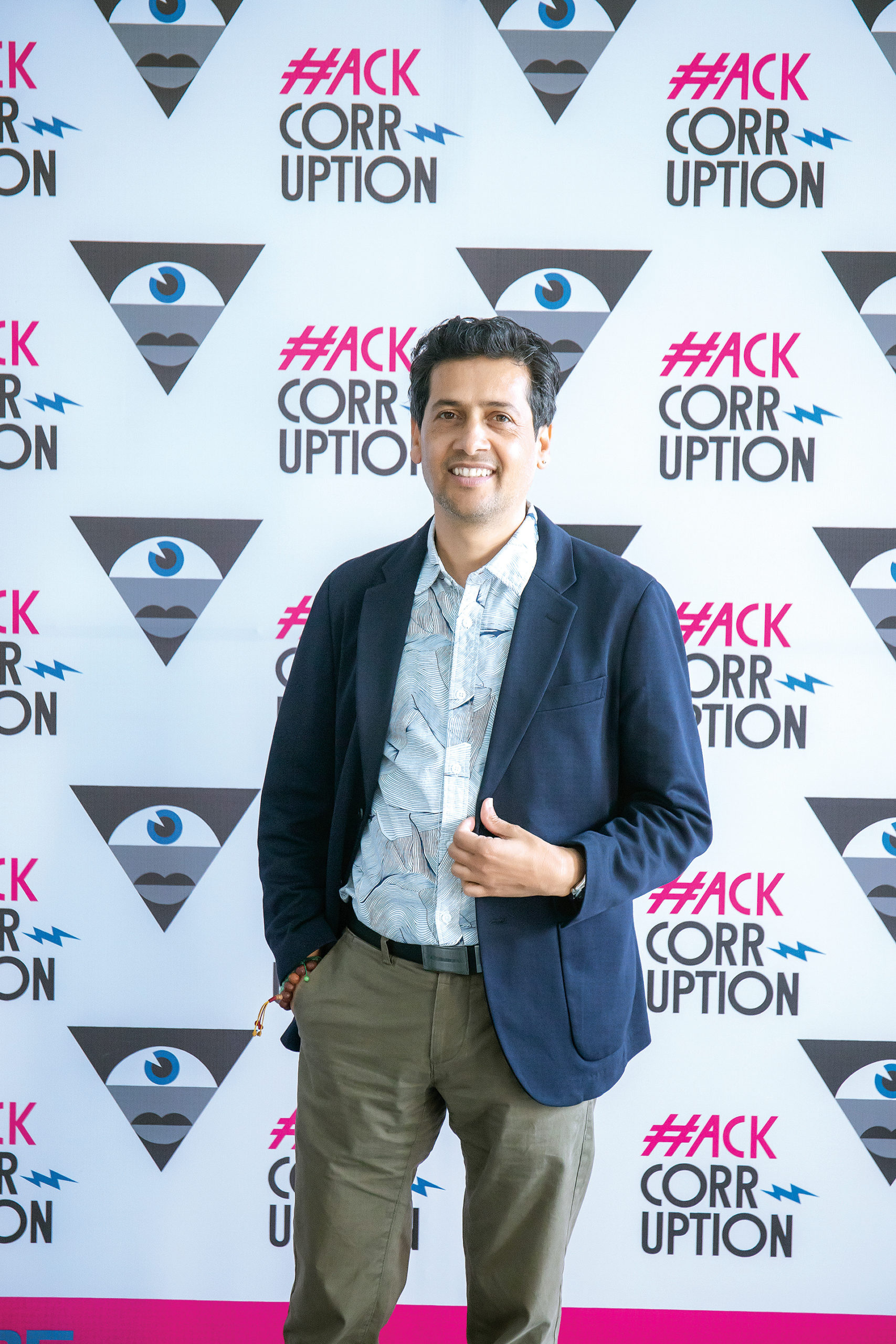 [gallery size="full" columns="7" ids="37233,37234,37235,37236,37239,37240,37241"]
[gallery size="full" columns="7" ids="37233,37234,37235,37236,37239,37240,37241"]
 The purpose of e-PMS (e-Procurement Monitoring System) is to establish a monitoring tool for the e-procurement system (E-GP portal) in Nepal and Bangladesh, which will enable third party or civil society monitoring of procurement. The system will flag potential corruption using a series of indicators such as the frequency of awards to single contractors, reduced time between bidding deadlines and award dates, and dummy bidding, among others.
DAAC
The purpose of e-PMS (e-Procurement Monitoring System) is to establish a monitoring tool for the e-procurement system (E-GP portal) in Nepal and Bangladesh, which will enable third party or civil society monitoring of procurement. The system will flag potential corruption using a series of indicators such as the frequency of awards to single contractors, reduced time between bidding deadlines and award dates, and dummy bidding, among others.
DAAC
 Grounded in Digital Anthropology and using Natural Language Processing and Digital Humanities, DAAC seeks to reimagine corruption data analysis. It will provide a natural language understanding of how corruption is taking place through citizen reviews, stories and media articles that are already available online but not aggregated, and that will help policymakers, CSOs and researchers understand where and how corruption can be curbed.
Support My School
Grounded in Digital Anthropology and using Natural Language Processing and Digital Humanities, DAAC seeks to reimagine corruption data analysis. It will provide a natural language understanding of how corruption is taking place through citizen reviews, stories and media articles that are already available online but not aggregated, and that will help policymakers, CSOs and researchers understand where and how corruption can be curbed.
Support My School
 Support My School will hold schools accountable for infrastructure projects by enabling community members to measure and track the progress of development projects for which public funding is received. As a budget utilisation tracking mechanism, Support My School will also gather data and highlight where schools need funding beyond their allotted budget.
PAK Zameen
Support My School will hold schools accountable for infrastructure projects by enabling community members to measure and track the progress of development projects for which public funding is received. As a budget utilisation tracking mechanism, Support My School will also gather data and highlight where schools need funding beyond their allotted budget.
PAK Zameen
 PAK Zameen aims to digitise land records in Pakistan and will combat corruption by eradicating manipulation, duplication and mutability of land records. Using blockchain to decentralise records and decrease corruption, PAK Zameen will simplify land purchases and boost tax revenue by expanding the registered property tax base.
KYP: Know Your Parliamentarian
PAK Zameen aims to digitise land records in Pakistan and will combat corruption by eradicating manipulation, duplication and mutability of land records. Using blockchain to decentralise records and decrease corruption, PAK Zameen will simplify land purchases and boost tax revenue by expanding the registered property tax base.
KYP: Know Your Parliamentarian
 KYP aims to aggregate all the data available in the public domain (official government data, from authenticated data reports) and create a profile of individual parliamentarians. In addition to basic demographic, work and party affiliation information, KYP will also aggregate information on assets and changes in their wealth, past and pending civil and criminal investigations, and their family tree to reveal political and business interest.
*Accountability Lab will be hosting the next hackathon in Colombia later in the summer.
Cheri-Leigh Erasmus
Global Director of Learning, Accountability Lab
KYP aims to aggregate all the data available in the public domain (official government data, from authenticated data reports) and create a profile of individual parliamentarians. In addition to basic demographic, work and party affiliation information, KYP will also aggregate information on assets and changes in their wealth, past and pending civil and criminal investigations, and their family tree to reveal political and business interest.
*Accountability Lab will be hosting the next hackathon in Colombia later in the summer.
Cheri-Leigh Erasmus
Global Director of Learning, Accountability Lab
 Cheri-Leigh Erasmus is the Global Director of Learning at the Accountability Lab, a nonprofit organisation aimed at making governance work for people by supporting active citizens, responsible leaders, and accountable institutions. She supports Accountability Lab’s learning and impact in 12 countries across Africa, South Asia and Latin America.
Erasmus has conceptualised and implemented knowledge, skills, and network-building curricula for reformers in the public service and civil society. She is committed to finding new ways of using citizen-generated data to strengthen civic participation, especially related to the increased inclusion of traditionally marginalised groups. She currently co-chairs the Steering Committee of the Transparency, Accountability and Participation (TAP) Network, co-chairs the board of Berrett Koehler-Foundation, and serves on the Board of Directors of Berrett-Koehler Publishers.
Business 360 caught up with Erasmus during her visit to Kathmandu to learn about the initiative. Excerpts of an interview with Erasmus.
Cheri-Leigh Erasmus is the Global Director of Learning at the Accountability Lab, a nonprofit organisation aimed at making governance work for people by supporting active citizens, responsible leaders, and accountable institutions. She supports Accountability Lab’s learning and impact in 12 countries across Africa, South Asia and Latin America.
Erasmus has conceptualised and implemented knowledge, skills, and network-building curricula for reformers in the public service and civil society. She is committed to finding new ways of using citizen-generated data to strengthen civic participation, especially related to the increased inclusion of traditionally marginalised groups. She currently co-chairs the Steering Committee of the Transparency, Accountability and Participation (TAP) Network, co-chairs the board of Berrett Koehler-Foundation, and serves on the Board of Directors of Berrett-Koehler Publishers.
Business 360 caught up with Erasmus during her visit to Kathmandu to learn about the initiative. Excerpts of an interview with Erasmus.
How did the concept of HackCorruption come about?
We conceptualised the idea when responding to a call for proposals from the Bureau of International Narcotics and Law Enforcement Affairs at the US State Department in late 2021. Initially, our idea was based on a single-country hackathon aimed at creating anti-corruption tools, but this later evolved into the regional model once we started implementing it. We’ve worked with two implementing partners, the Centre for International Private Enterprise (CIPE) and Development Gateway on this project.What is the major objective behind this initiative?
Ultimately, we want to build regional interconnected networks of technologists, activists and governance practitioners who work together to use technology to find uncommon solutions for corruption-related problems. Many hackathons in this field convene people with tech skills, who don’t necessarily understand corruption challenges or the government processes their tools seek to enhance. This leads to the creation of tech tools that don’t fit the challenge, or for which you can’t secure government buy-in. We hope to shift this by building diverse cohorts that can unpack and solve problems in a more nuanced and feasible way. At the end of the day, our hope is that HackCorruption will lead to the adoption of some new technologies by civil society and government.What do you plan to achieve with this?
First, we hope that HackCorruption will lead to the adoption of some new technologies by civil society and the government. But more importantly, we believe that there is real value in the networks we are building. If we think about the hackers, our participants, as entrepreneurs, it’s safe to say that their first idea won’t necessarily succeed. But maybe their second or third idea does. We hope that these networks will continue to work together to ideate around govtech solutions and continue working on corruption challenges beyond the scope of HackCorruption. We want to support diverse new networks of skilled individuals who are eager to use their expertise to create govtech solutions.What do you believe to be the reason for corruption throughout the world?
This is a very difficult question. I believe that corruption is closely tied to social norms, and what we allow or accept in our society. These things are hyperlocal. In one community, corruption may be seen as acceptable because civil servants’ power goes unquestioned and people normalise paying for basic service delivery. In other spaces, corruption may be accepted because we expect civil servants or elected officials to have a certain standard of living that doesn’t align with their salary. There are many reasons and many grey areas, but ultimately the most marginalised among us suffer disproportionately when corruption goes unchecked. The reasons may vary greatly, but I believe that corruption thrives when there is impunity and when perpetrators are not held accountable. [gallery size="full" columns="7" ids="37233,37234,37235,37236,37239,37240,37241"]
[gallery size="full" columns="7" ids="37233,37234,37235,37236,37239,37240,37241"]
Published Date: June 1, 2023, 12:00 am
Post Comment
E-Magazine

